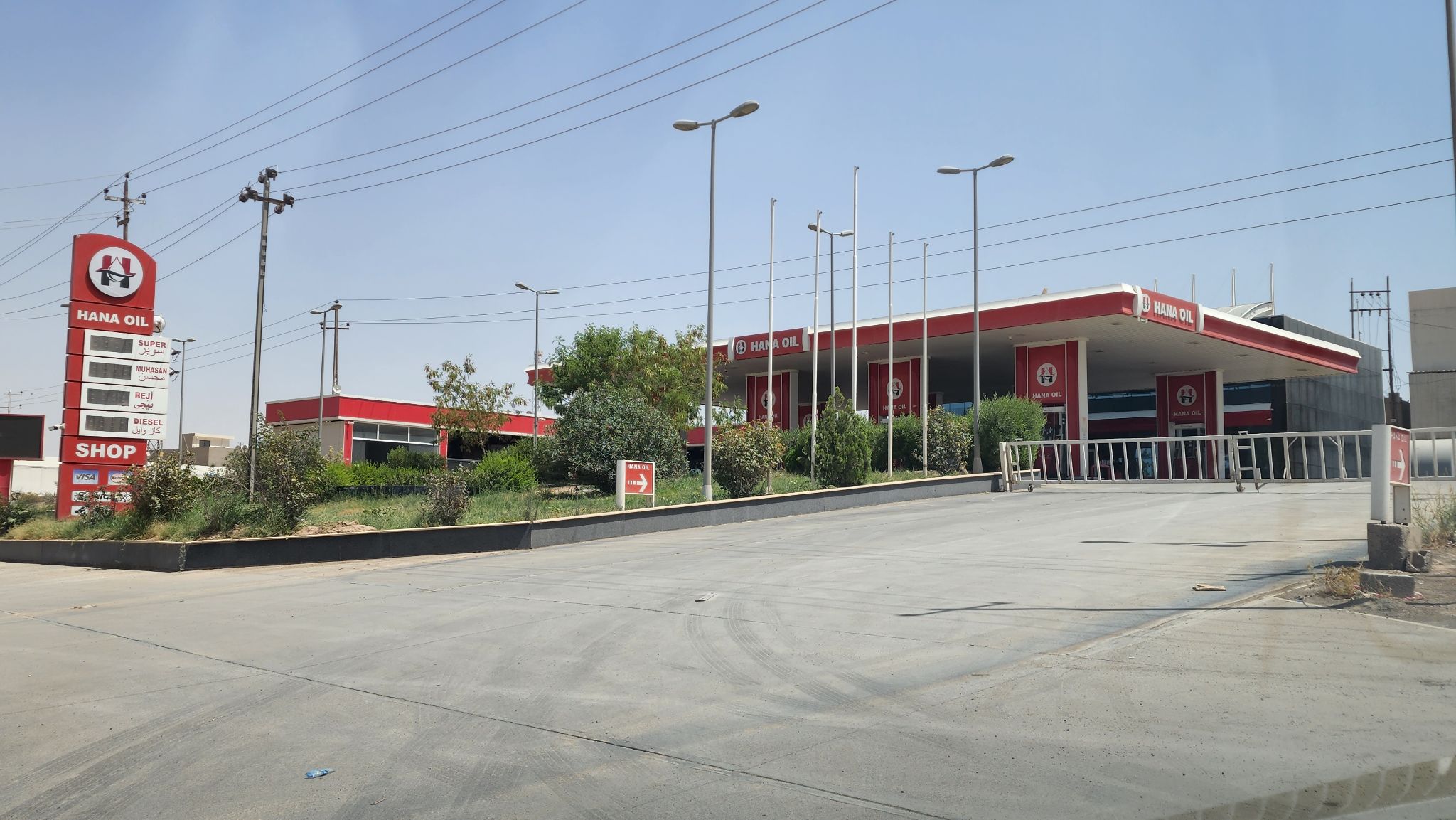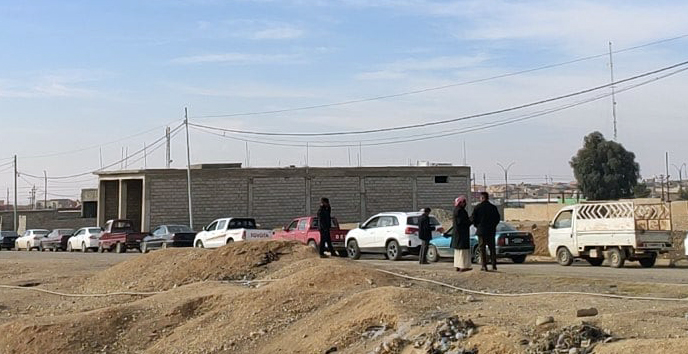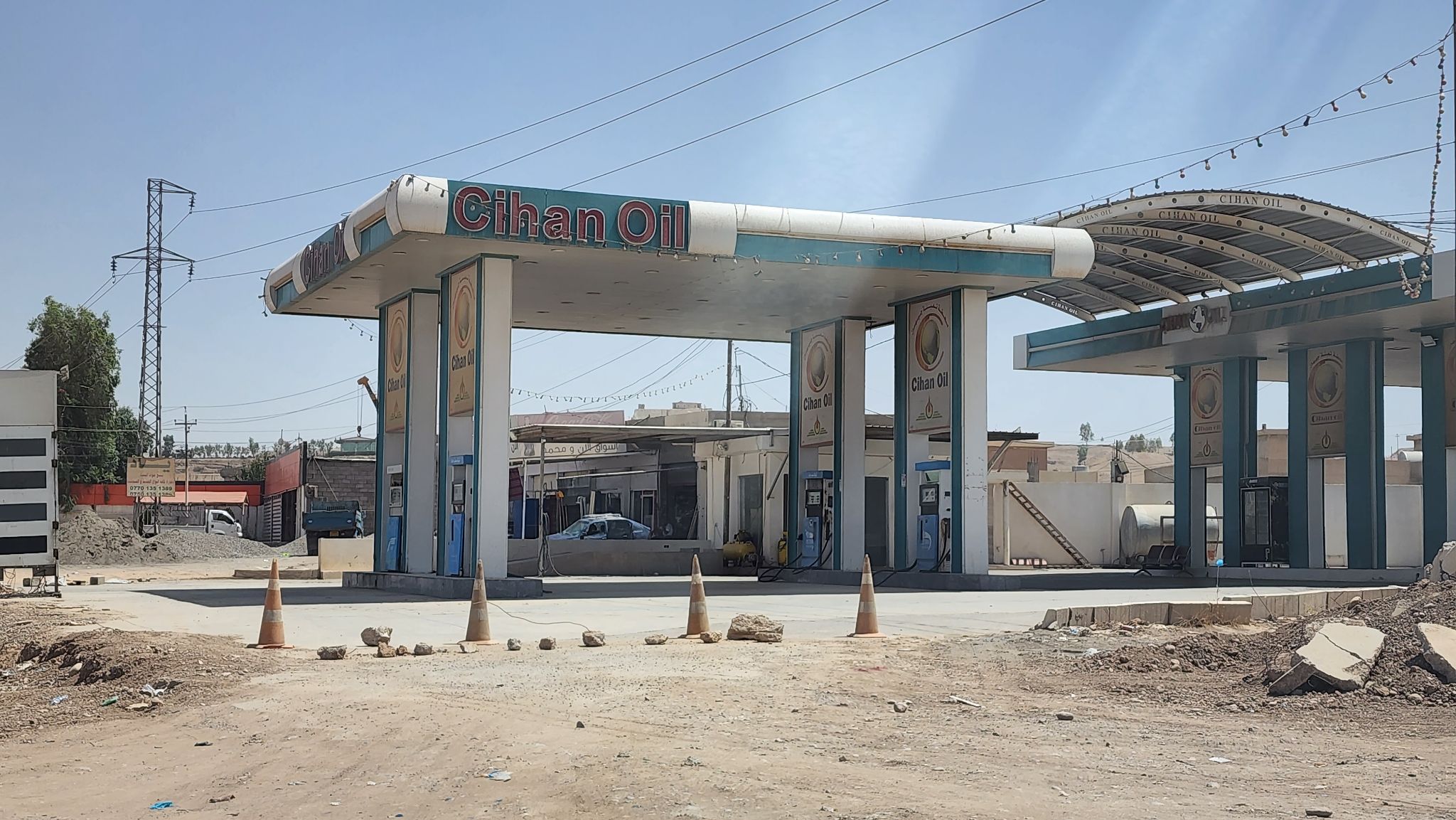About 150 private petrol stations in Kirkuk and Ninewa have been closed by the Iraqi federal government for various reasons, for charges of lack of licenses and smuggling.
According to KirkukNow's field investigation, the petrol stations selling commercial gasoline in Kirkuk have been closed since Tuesday, June 28, morning.
KirkukNow learned through a number of petrol station owners and employees that the Iraqi Oil Ministry has ordered them to stop because they have not obtained official license from the federal government.
Some of the petrol stations have been accused of causing the gasoline crisis in Kirkuk, without further explanation from Baghdad on the accusation.
About 120 petrol stations in Kirkuk will be closed, selling ordinary, premium and super gasoline at 1,200 Iraqi Dinars IQD (USD0.8) to 1,450 Iraqi dinars per liter.
"We were reducing the pressure on the government petrol station because at least 100 to 150 drivers were daily fueling here," an owner of one of the petrol stations, who asked stay anonymous, told KirkukNow.

Another petrol station owner said that the decision to close the petrol stations was issued by Baghdad, but the date has not been determined.
KirkukNow contacted the administration and other relevant parties in Kirkuk and expressed their unawareness of the decision to close the private petrol stations.
In Kirkuk, 27 government and 68 private licensed petrol stations distribute state-subsidized gasoline at 450 IQD according to coupons, of which two to three petrol stations sell government gasoline at the commercial price of 1,000 IQD per liter without coupons.
Kirkuk province (with an estimated population of more than 1.7 million) is supplied with 1.5 million liters of government gasoline daily.
Each private vehicle in Kirkuk province, according to the government coupon, every eight days are entitled to get only 50 liters of gasoline at a price of 450 Iraqi dinars IQD (USD0.3) per liter, while taxis will be given 120 liters and trucks will be given 80 liters.
The decision to close private petrol stations is not only in Kirkuk, but also covers several other areas of Ninewa province.
We do not have an official license from the Iraqi government
According to Kirkuk Now, 20 private petrol stations have been closed in Shingal (Sinjar) district, along with several petrol stations in Tal Afar district.
Haji Kuli Hussein, owner of a closed petrol stations in Shingal, said the decision to close the petrol stations was implemented by the Iraqi National Security Service INSS.
He added that they were importing gasoline from Syria, Mosul and several other areas and sold the normal type at 850 to 900 dinars per liter.
“Our petrol station is in Sinuny subdistrict of Shingal, where there are 11 private petrol stations, all of which have been closed, along with all private petrol stations in Sinjar and Tala'afar,” Haji told KirkukNow.
There are 20 private petrol stations in Shingal district and only two government petrol stations, one in the district center and the other in Sinuny, which sell gasoline at subsidized price.

“INSS has been appointed by the federal government to supervise the implementation of the measures for the distribution of government gasoline and they closed the private petrol stations in order to prevent gasoline smuggling," Khudeda Chuki, mayor Sinuny said.
Those petrol stations are accused of smuggling gasoline to the Kurdistan Region of Iraq KRI where most of petrol stations are private.
The price of a liter of ordinary gasoline in the KRI is 1200 IQD, pushing motorists to head to disputed territories to get cheaper gasoline.
"The National Security Agency has closed the 11 private petrol stations in the district which do not have a license, will not be allowed to operate again until they receive a license," mayor of Sinuny said.
Chuki complained that the daily gasoline quota for Sinuny is 30,000 liters, while about 100,000 people live in the region, but "more gasoline is supplied to other places, although Sinuny is three times larger and more populated.
There are 28 government petrol stations in Ninewa, 11 of which are in Mosul, distributing more than 2.4 million liters of gasoline daily.





